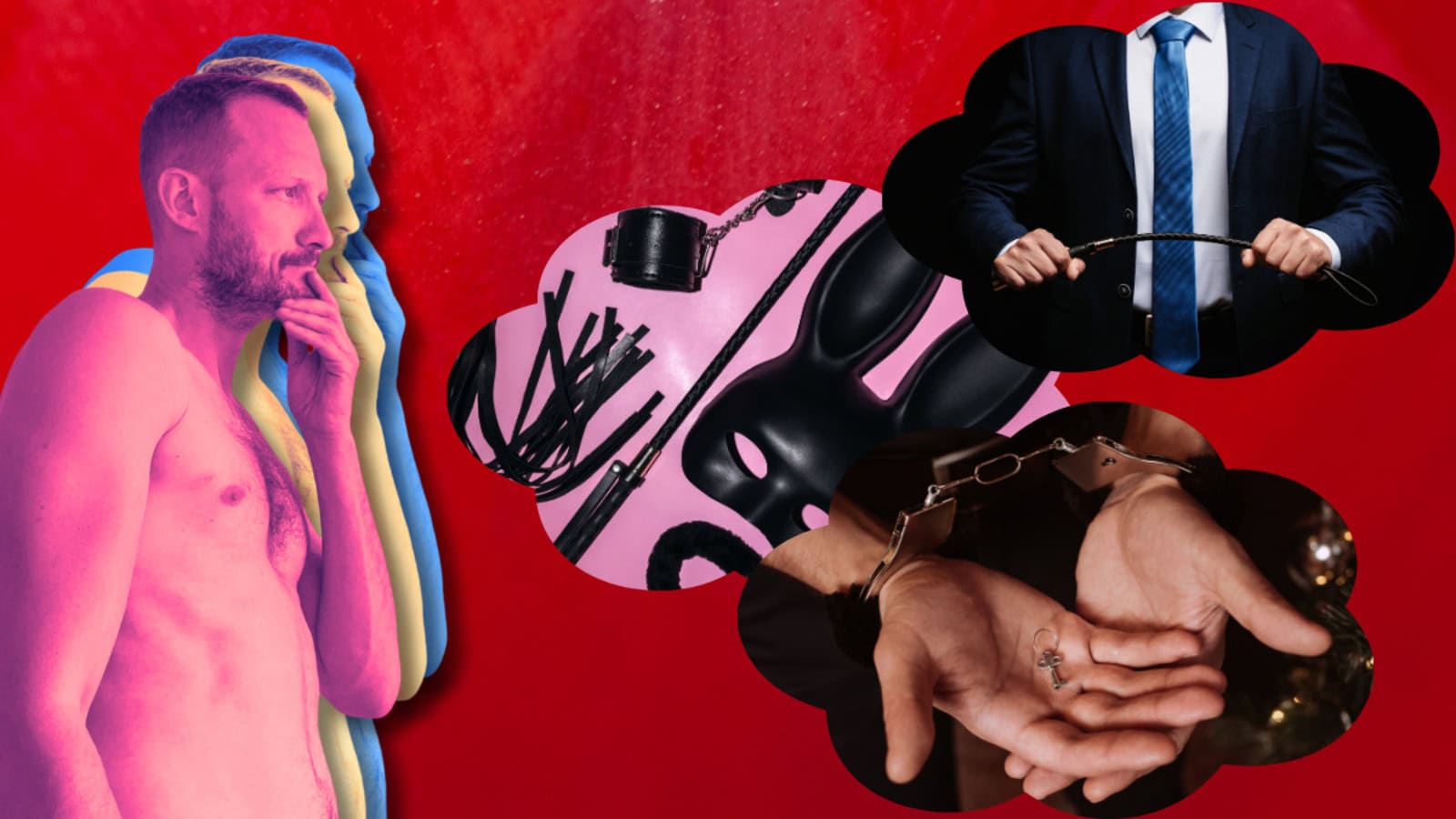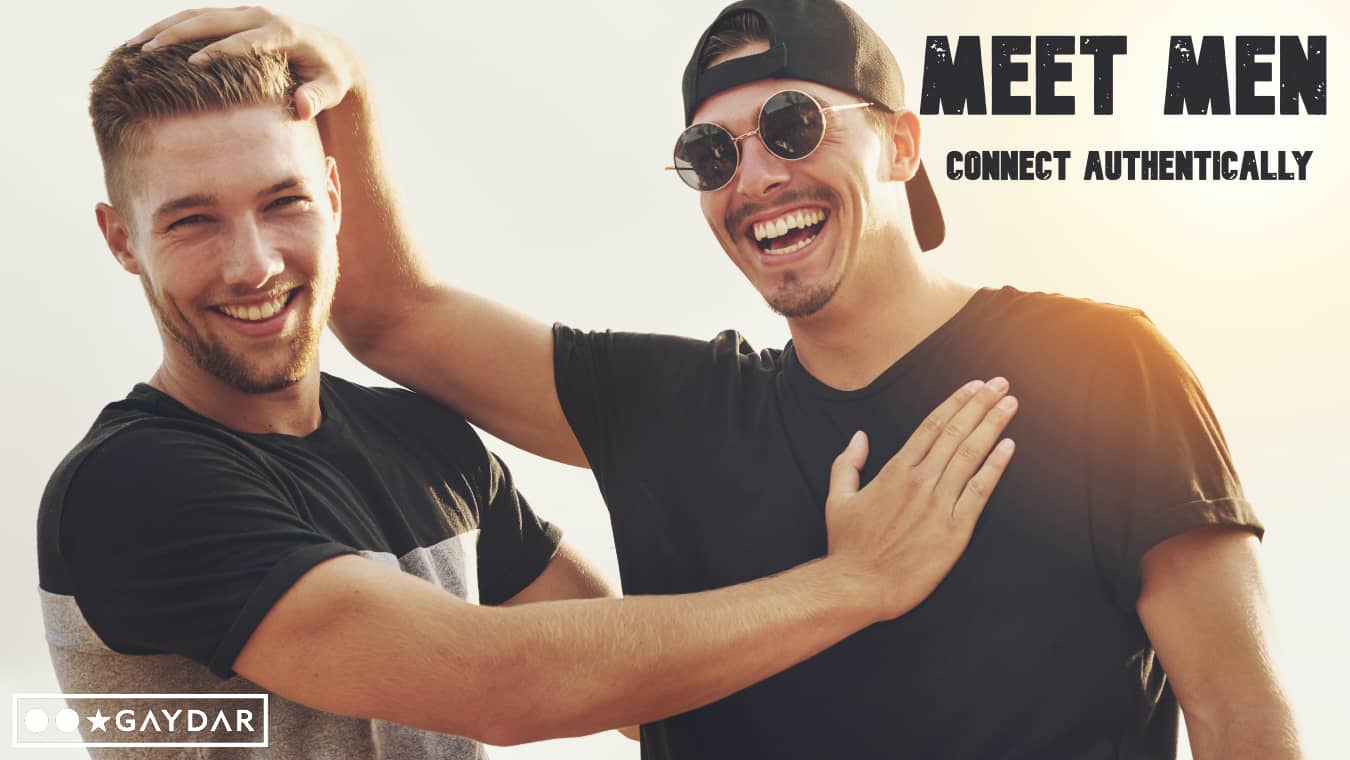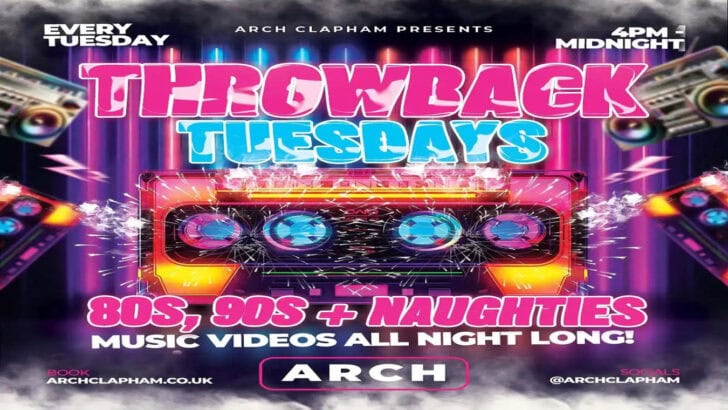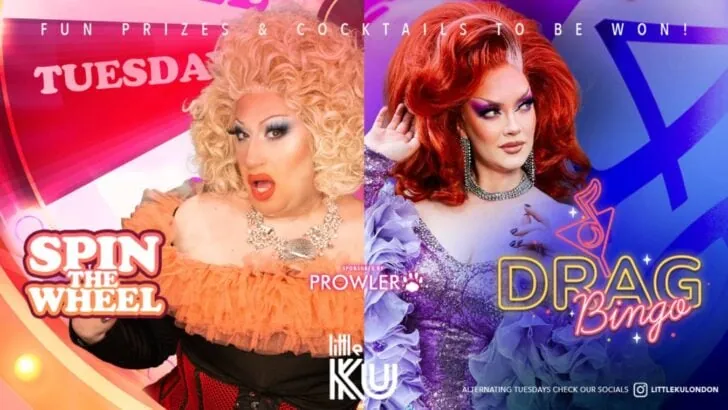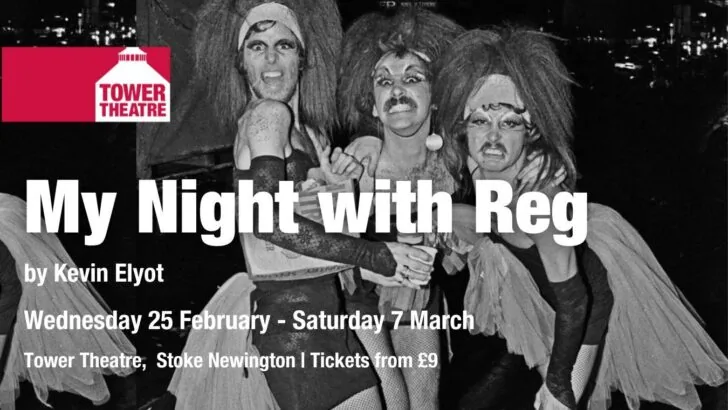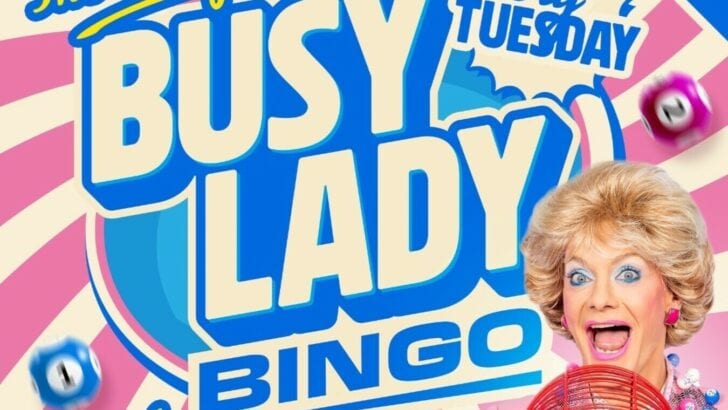I once dismissed my kinks as nothing more than private entertainment. Embarrassing escapes fuelled by twinges of shame. These strange mental collages seemed like meaningless byproducts of desire. Sometimes thrilling, occasionally bizarre, often troublesome. I filed them away under “just something everyone does but never talks about “.
But I’ve come to understand a profound truth. Our sexual fantasies, kinks, fetishes, fantasies and desires are not doors leading away from ourselves. They are portals inward. What if, instead of using them as escape hatches, we recognised them as invitations to healing and self-knowing? What if these intimate imaginings could guide us toward profound transformation?
In my work as a therapist and embodiment facilitator, I am on a mission to get as many gay men connected to their sexual selves, their pleasure centres and their sensuality in ways that feel celebratory, healing and beautiful.
Pleasure Medicine, my conscious dance for sensuality, connection and joy is a place where gay men come together to relate and meet each other in a warmer, kinder more caring way. We get connected to sensuality and pleasure through movement and dance, without booze, in the daylight on a Saturday morning! And for many it is helping them to reconnect to their gayness as well as their desires…
The Erotic Mind
The idea that my sexual fantasies could lead me down a path of self-realisation and transformation was a game changer for me. It transformed everything on my own journey from sex addiction to soulful sexuality. It was sparked by a book called The Erotic Mind by Jack Morin and has deepened through my work as a therapist and my training as a Somatic Sexologist.
Morin talks about how our ‘core erotic themes’, the patterns and flavours that show up again and again in our fantasies, aren’t random at all. In fact, they’re like emotional fingerprints that reveal hidden longings, unresolved wounds and fractured parts of ourselves that we are yearning to heal, integrate and even celebrate.
I remember reading this and just sitting there, blinking at the page in awe, feeling that weird, slightly panicked flutter you get when something feels both incredibly right and deeply uncomfortable. Because suddenly, all those ‘weird’ fantasies I’d judged myself for started to make a different kind of sense. I even started to see the sex addiction I’d suffered with for years through a different lens. I could see how my behaviour was linked to childhood traumas and how a deeper part of me was trying to reconcile and make sense of some of the trauma I’d been through.
A Very Common Fantasy
Take, for example, the classic fantasy of being overpowered, controlled and dominated. For years, I just thought it meant something was wrong with me. It felt fun and hot in the moment, but laden with shame and guilt afterwards. This is a cycle that can repeat itself time and time again. Especially when we end up playing out these fantasies in situations and with people that are not boundaried, respectful, caring or conscious (which can so often be the case with gay men).
But when I started looking through Morin’s lens, and through the body-based work I’m doing in my Somatic Sexology training, it clicked; sometimes the fantasy of surrendering your power isn’t actually about being weak or damaged or broken. It’s often about finally letting go of a sense of control and perfectionism that you’ve been holding onto for a lifetime. It can be about learning to feel safe enough in the world, wanted enough or to stop micro-managing everything in your life and environment. It can be about your deeper unconscious trying to help you to learn about trust. But when we play these fantasies out in problematic ways, it gets messy.
Softening Judgement
When you see your sexual fantasies like this, the judgement softens and there’s room for wonder, curiosity, compassion and awe. One story in The Erotic Mind really stayed with me. Morin describes a gay man who had a recurring fantasy of being tied up and sexually used and abused by a group of strangers.
On the surface, it looked quite extreme, maybe even self-degrading. But when explored through this new lens, what surfaced underneath was something much deeper and more profound. This man had grown up feeling invisible, unwanted, unloved by his parents and profoundly disconnected from his body. In his fantasy, being used in this context wasn’t really about being humiliated. It was actually about finally being seen, desired and wanted so intensely that he couldn’t be ignored. It was about being the centre of attention with all eyes and focus on him.
This fantasy was a way for his psyche to rework that early pain of abandonment into a feeling of radical belonging, even if the fantasy itself seemed somewhat dark or chaotic. When he worked with it consciously, the fantasy became an erotic map, not to necessarily act out literally, but to understand the deeper longing for connection, recognition and embodiment. This particular client learned that he could get those needs met in other areas of life and the need to act out that kink dissolved.
Communicate With Your Kinks
And maybe it’s not even just about ‘understanding’ the fantasy, either. Maybe it’s about letting it speak, letting it out into the open, letting it breathe and talk to you.
Once explored in this way, these fantasies don’t always need to carry on being acted out. And then sometimes it is useful to create situations and scenarios where you can play with them in safe containers with clear communication and good boundaries with the right people. What can be deeply healing (sometimes) is creating ‘playgrounds’ to enact our fantasies in ways that are actually healing and expanding versus exhausting and damaging.
In Somatic Sexology, we talk a lot about embodiment. For me, this simply means learning to listen to your body and letting it lead the way, allowing healthy sensation to be the guide. Sexual fantasies, kinks, fetishes and desires, when explored with this deeper awareness, can become a kind of embodied enquiry. A way to ask, “what is this part of me seeking?” without needing to fix it, shame it or even act it out literally. Sometimes the fantasy wants to be played with. Sometimes it just wants to be witnessed. Sometimes it doesn’t want to be healed, it wants to be held.

Kink Commonality
I remember one exercise I did in a workshop years ago where we were asked to imagine stepping into one of our fantasies, but to stay connected to our body, our breath and our awareness. It was deeply uncomfortable at first and very awkward. Honestly, I think half the room wanted to bolt.
We were asked to describe our fantasy to the group in detail. CRINGE! But slowly, as we all shared from our hearts, and as we heard everyone’s varying shades of fantasy, something started to shift. We realised that we weren’t actually alone in our desires. We were all much more similar than we imagined. With that came relief at not being a weirdo.
As I relaxed into it both listening to others and sharing my own desires, I realised the fantasy that had been deeply problematic up to now, was actually carrying a deep, tender longing: to be cherished and to feel safe at the same time. To be so desired that it dissolved every doubt I carried about my self-worth. It wasn’t about the ‘storyline’ or the role play at all. It was about the feeling underneath that was crying out to be reconciled within me.
That moment stayed with me because it taught me something huge: our sexual fantasies aren’t the problem. Our disconnection from them is. When we exile them, shame them or push them away, we cut ourselves off from a powerful source of wisdom, insight, clarity, healing and self-knowledge.
And in the context of the modern gay man’s sexuality, this becomes especially important to look at with love, compassion and care. Our sexual kinks, festishes and fantasies, especially in a culture where dopamine-driven behaviours are normalised, can sometimes spiral out of control.
The constant chase for higher stimulation, fuelled by dopamine spikes and mixed in with the subconscious shadow trying to work itself out, can lead some men toward fantasies and kinks that become more and more extreme over time, not necessarily because the fantasy itself is wrong, but because the underlying need is still unmet. Without conscious engagement, the search for intensity can sometimes mask a deeper yearning for connection, intimacy and aliveness.
This is not about kink-shaming. Quite the opposite. We celebrate kink! We celebrate the endless creativity and beauty of erotic diversity. We celebrate the imagination and its stunning capacity to create fantasy worlds and sexy fairytales designed to help and support us! But it’s also vital that we create the capacity for gay men to explore their fantasies with curiosity rather than compulsion.
I’m on a mission to teach the concept of ‘pleasure that heals’ rather than numbs. Desire that liberates rather than imprisons. Fantasies that bring us home to ourselves rather than further away. This is how Pleasure Medicine was born, my twice monthly conscious dance for GBTQ men in East London. It’s a safe, substance free space where kindness, care and connection are the heart beat. Through intimacy practices and joyful dance we learn to rewire where and how we get pleasure, surrounded by a brotherhood of other gay men. It’s a space that celebrates sensuality.
When we approach our desires and fantasies with curiosity and when we let ourselves feel the true feelings underneath, they can become bridges that show us what we need. What we long for. What is within us that is still longing to be met.
Of course, it’s not always clean or easy. Sometimes the feelings that come up are messy, painful and confusing. Often a fantasy carries echoes of past hurts, trauma or cultural shame. Sometimes you don’t get a neat, tidy answer. And that’s okay. Healing isn’t about tidying everything up into a neat pretty bow. It’s about meeting what is here, now, with as much honesty, vulnerability, tenderness and compassion as we can muster.
If anything, the biggest transformation I’ve experienced in this work has been moving from “what’s wrong with me?” to “what’s trying to heal in me?” That shift, from self-judgement and criticism to enquiry and exploration, truly changes everything.
It’s made me softer with myself. Softer with others too. It’s made me less afraid of my desires and less judgey of the parts of me that don’t fit into neat little boxes. It’s unlocked more with myself and sexual partners. It’s opened my capacity to communicate more clearly, to set boundaries, to create containers of safety and care and to ask for my needs to be met. And it’s shown me how I can show up for others to help meet their needs, too. I have so much more fun!
I think there’s this myth that becoming ‘healed’ means erasing all our contradictions. But what if it means learning to dance with them and to hold them? What if the fractured parts of us don’t even need to be healed but held?
Sometimes, I still get caught off guard by a fantasy that feels strange or surprising. But now, instead of recoiling, I try to lean in. Not to act it out necessarily, just to listen. Just to ask, “What are you trying to show or teach me? What are you trying to guide me towards?”
And often, what’s there is not something dirty, twisted or wrong. It’s something achingly human; a need for tenderness, a desire for play, a wish to feel powerful, a yearning to belong, a need to be more deeply known and seen.
Our erotic imagination is deeply wild. It’s also messy. It’s gloriously non-linear. But it’s also wise. It knows things about us that we’ve forgotten or haven’t yet realised.
If we let it, it can lead us back to ourselves. And not through bypassing the mess, but by moving right through it. Maybe that’s the real magic; not fixing anything. Not getting it all ‘right’. But just daring to stay curious. Daring to listen. Daring to love ourselves, even in the places we were taught to hide.
And maybe, just maybe, that can lead us to true sexual freedom; the radical and courageous act of being fully, deeply, beautifully, sexually and sexily alive.
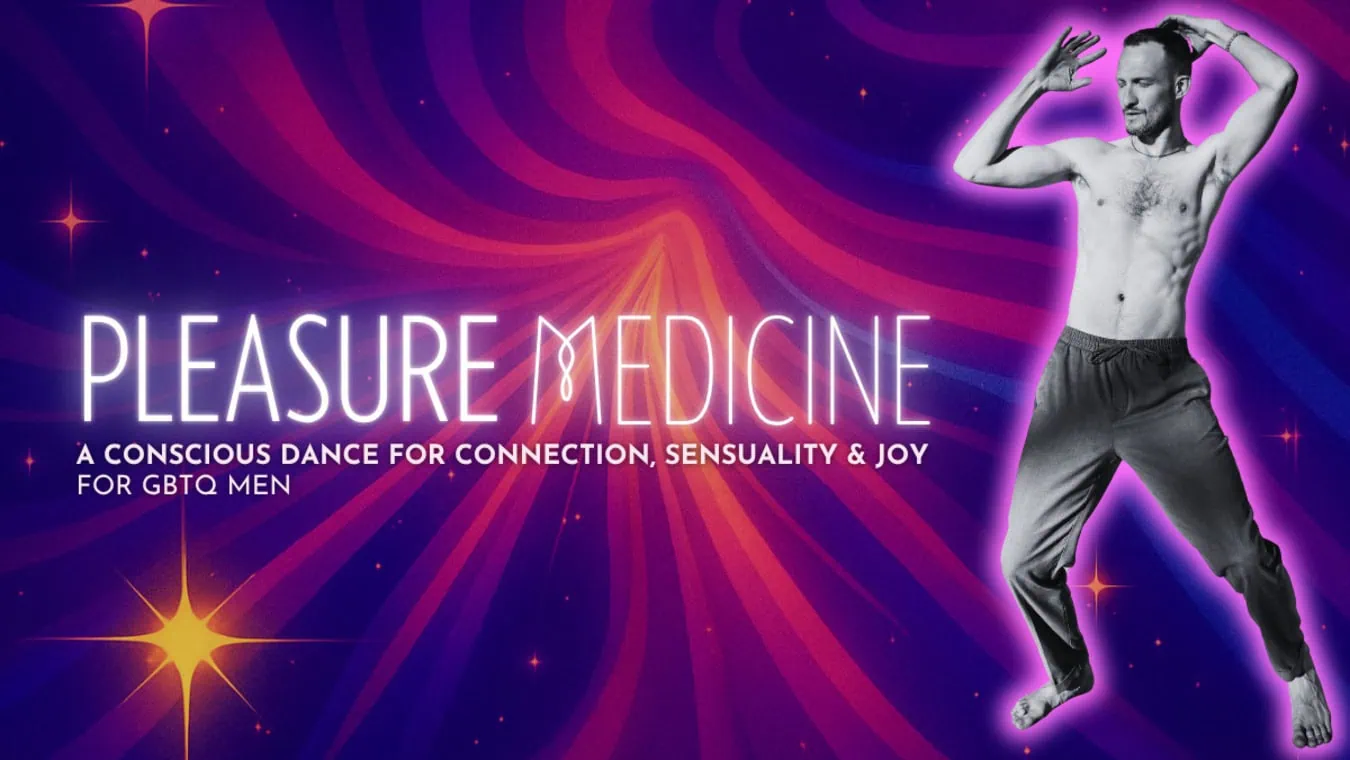
About Gary
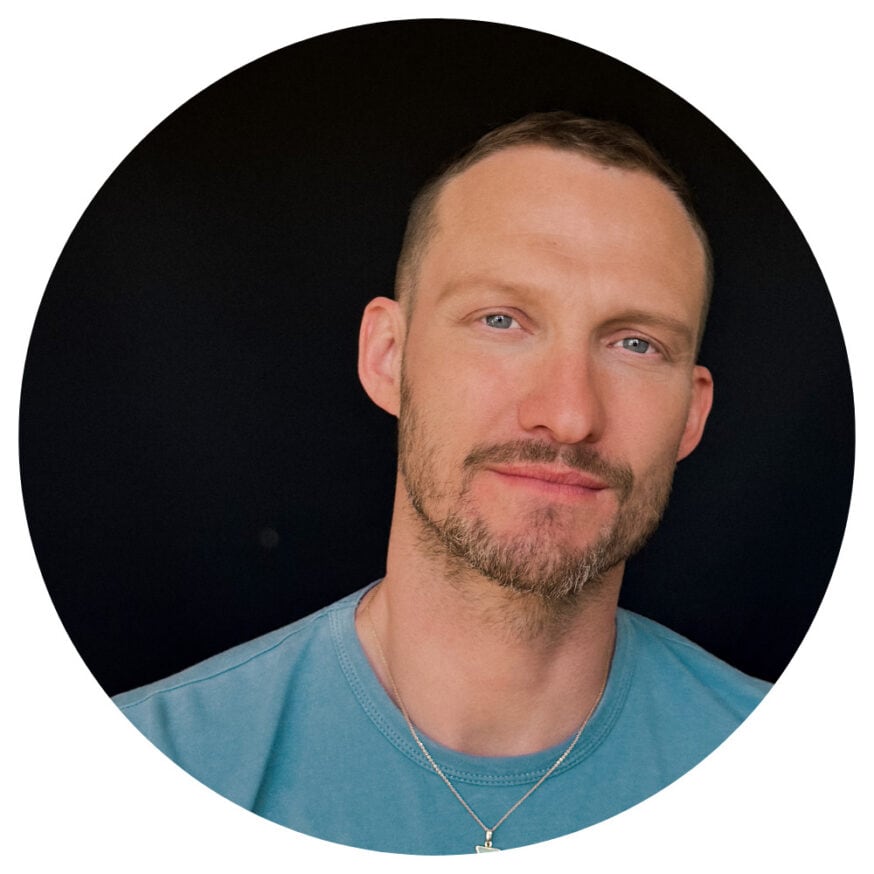
Gary is a therapist, Somatic Sexologist, award-winning musician, conscious DJ and writer. He runs Pleasure Medicine, a bi-weekly sensuality and dance event for gay men in East London. With over a decade of therapeutic experience, Gary helps men reconnect with pleasure, ease shame and find joy through movement, touch and authentic connection. He writes personal stories and cultural analysis pieces for LGBTQ media from the perspective of being in the waters with the reader, trying to work it all out.
